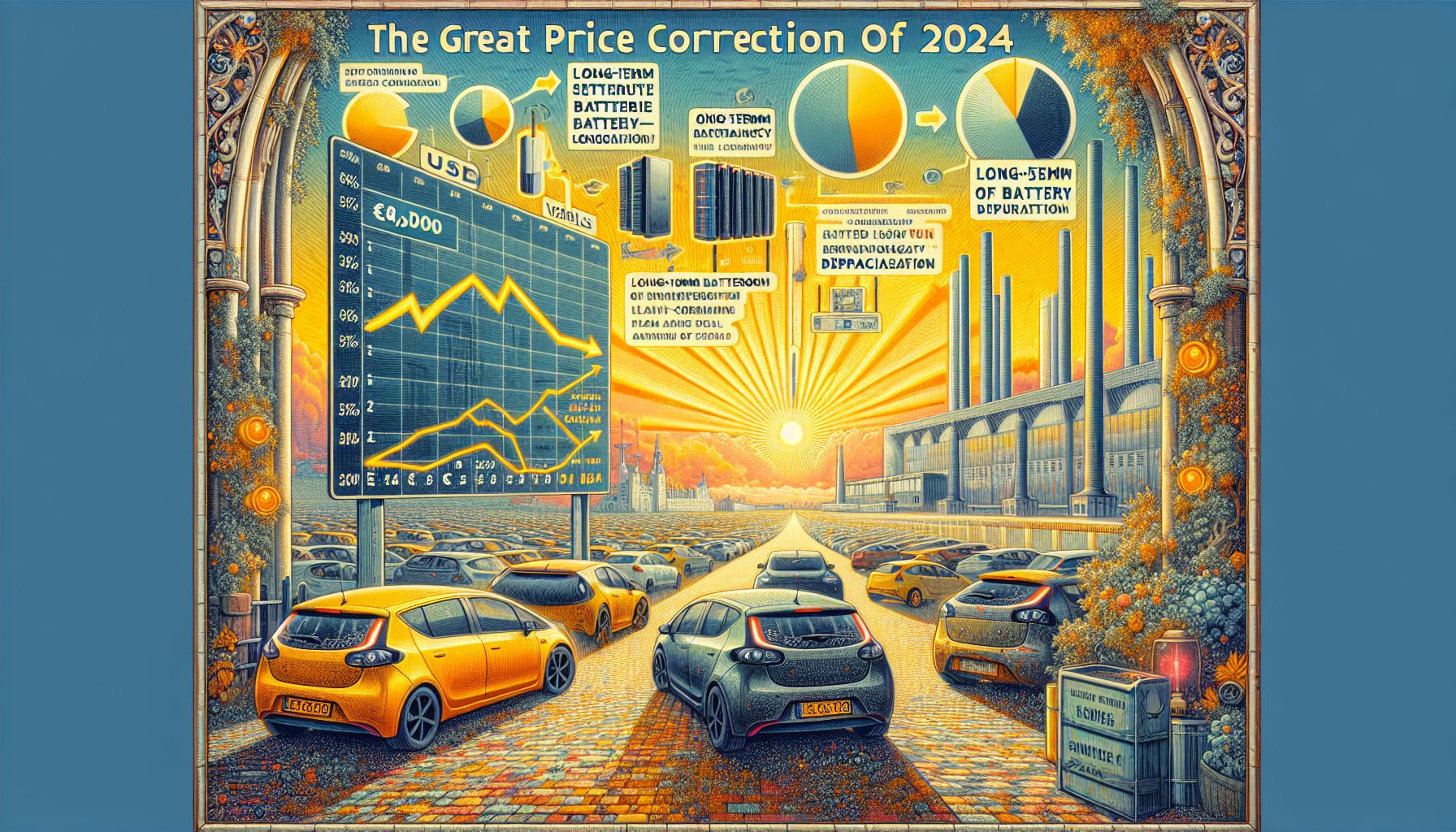Electric Vehicle Values: The Great Price Correction of 2024

Eindhoven, Monday, 25 November 2024.
Used electric vehicle prices are experiencing unprecedented drops, with some models losing up to €8,500 in value compared to traditional cars. This shift, driven by advancing technology and changing government policies, marks a significant turning point in the EV market. Recent data shows used EV sales surging 57% despite faster depreciation, indicating a maturing market where affordability meets sustainability. Battery longevity fears appear overblown, with only 2.5% requiring replacement outside recalls, suggesting better long-term value than previously thought. This price correction could make EVs more accessible to mainstream buyers while challenging traditional assumptions about electric vehicle depreciation.
Technology and Policy Driving Change
The rapid evolution in electric vehicle technology and supportive government policies have catalyzed a notable shift in the market dynamics for used EVs. As advancements in battery technology have slowed the depreciation rates compared to their internal combustion engine (ICE) counterparts, national fiscal policies also play a crucial role. According to a study, these policies can make a Tesla Model 3 significantly cheaper or more expensive than a Toyota Corolla, depending on the subsidies available[1]. This fluctuation in value is indicative of the broader impact that fiscal measures have on the automotive market.
Economic Factors and Market Trends
The depreciation of electric vehicles is further influenced by macroeconomic factors, including economic downturns and supply chain disruptions like those seen during the COVID-19 pandemic. These factors have historically affected vehicle values and resale markets, often increasing the demand for used vehicles when new car production slows down[1]. Additionally, the surge in used EV sales by 57% is a testament to their growing appeal, driven by increased supply and competitive pricing[6]. As the EU’s ban on new petrol and diesel car sales by 2035 looms, analysts predict that emissions-based taxation and battery production costs will continue to shape EV resale values[1].
Battery Health and Longevity
Concerns about battery longevity, a significant factor in EV depreciation, are being alleviated by data showing that only 2.5% of EV batteries have needed replacement outside of manufacturer recalls, indicating slower battery degradation than anticipated[1]. This improvement in battery reliability is expected to bolster consumer confidence and contribute to more stable resale values over time. Furthermore, warranties that extend up to eight years or 160,000 kilometers provide additional assurance regarding battery health[1]. These developments suggest that the initial rapid depreciation of EVs due to battery technology advancements may no longer be a major deterrent for potential buyers.
Market Accessibility and Future Prospects
The dramatic price correction in the used EV market is making these vehicles more accessible to a wider range of consumers. As prices continue to drop, with forecasts indicating a potential 28% decline by 2030[6], used EVs are becoming a budget-friendly alternative to new models. This trend is further supported by federal tax credits, such as those under the Inflation Reduction Act, which can provide up to $4,000 for qualifying vehicles[4]. As the market matures, the combination of affordability, improving technology, and environmental benefits is expected to challenge traditional assumptions about vehicle depreciation and ownership, potentially leading to a broader adoption of electric vehicles.

